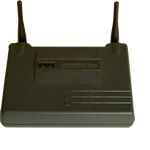'ZDNET Recommends': What exactly does it mean?
ZDNET's recommendations are based on many hours of testing, research, and comparison shopping. We gather data from the best available sources, including vendor and retailer listings as well as other relevant and independent reviews sites. And we pore over customer reviews to find out what matters to real people who already own and use the products and services we’re assessing.
When you click through from our site to a retailer and buy a product or service, we may earn affiliate commissions. This helps support our work, but does not affect what we cover or how, and it does not affect the price you pay. Neither ZDNET nor the author are compensated for these independent reviews. Indeed, we follow strict guidelines that ensure our editorial content is never influenced by advertisers.
ZDNET's editorial team writes on behalf of you, our reader. Our goal is to deliver the most accurate information and the most knowledgeable advice possible in order to help you make smarter buying decisions on tech gear and a wide array of products and services. Our editors thoroughly review and fact-check every article to ensure that our content meets the highest standards. If we have made an error or published misleading information, we will correct or clarify the article. If you see inaccuracies in our content, please report the mistake via this form.
Cisco Aironet 350 Series Access Point


Cisco Aironet 350 Series Access Point
pros and cons
- Fast highly configurable powered via the Ethernet cable.
- Expensive compared with simpler access points.
The Aironet 350 Access Point from Cisco is designed to provide a wireless LAN within a company's offices. It's highly configurable, allowing it to be used as a single access point or within a larger wireless LAN. It's also very fast -- even when used with other vendors' adapters. It costs far more than the cheapest access points available, but its performance and manageability may be that important to you.
The Aironet 350 can be desk or wall-mounted. The twin antennas rotate so they can be vertical whichever way the unit is mounted. Power is provided via the access point's Ethernet port, using the UTP cable. The power gets onto the cable either through a supplied power injector -- a power supply and connector block with two RJ-45 sockets -- or through one of Cisco's other power injection devices. These include powered switches or powered patch bays. The advantage of this system is that only a single cable needs to be run to the access point, giving you much greater flexibility over placement -- there's no need to site the access point near a mains outlet. A standard for providing power over Ethernet, 802.3af, is in draft at the moment and should be ratified later this year.
You configure the Aironet 350 using a browser, using Telnet or through a serial terminal. If you want to use either of the first two options, there's a utility supplied which allows you to view or set the IP address of the access point, but it will use DHCP if there's a server on the network. You can also configure most of the access point's operation through SNMP.
There's an express setup page you can use if you're not concerned with the finer points of configuration -- and unless you have a complex network this is all you'll need to use. You can select whether you want to optimise for range or throughput, turn on WEP encryption and set SNMP community strings.
However, if you want to make more detailed changes to the configuration, you can do this. It's worth pointing out that unless you're familiar with the finer aspects of Cisco network configuration you're not going to find much of any use here. However, if you do have some specific requirements, such as packet filtering, you should be able to find a page to help you.
You can use the Aironet 350 as a repeater only, to provide wireless network access to remote corners of the building without needing to wire it into the network -- you'll still need to connect power to the access point through a network cable though.
We were also supplied with an Aironet 350 PC Card adapter, which differs from most other PC Card 802.11b adapters in that it implements Cisco's extensions to the 802.11b protocol. You'll also need to use a Cisco card if you want to implement Cisco's interim solution to the security problems with WEP encryption.
Top ZDNET Reviews
Our tests show that the Aironet 350 access point is fast. Even using a third-party 802.11b adapter, it delivered the highest throughput we've seen so far in an 802.11b access point. Throughput was measured at 6.6Mbit/s, which is over 1Mbit/s faster than the fastest of the home wireless gateways we recently reviewed. Turning on WEP encryption didn't slow this down at all. Neither was this solely due to Cisco's extensions to the 802.11b protocol -- we re-ran the tests using the Toshiba notebook's built-in 802.11b adapter, and got similarly impressive results.
If you're planning on deploying a wireless network with many access points, the Aironet 350 is flexible and powerful enough to ensure you don't need to put in more units than is necessary. It costs more than many 802.11b access points, but offers more manageability if you're deploying several units.